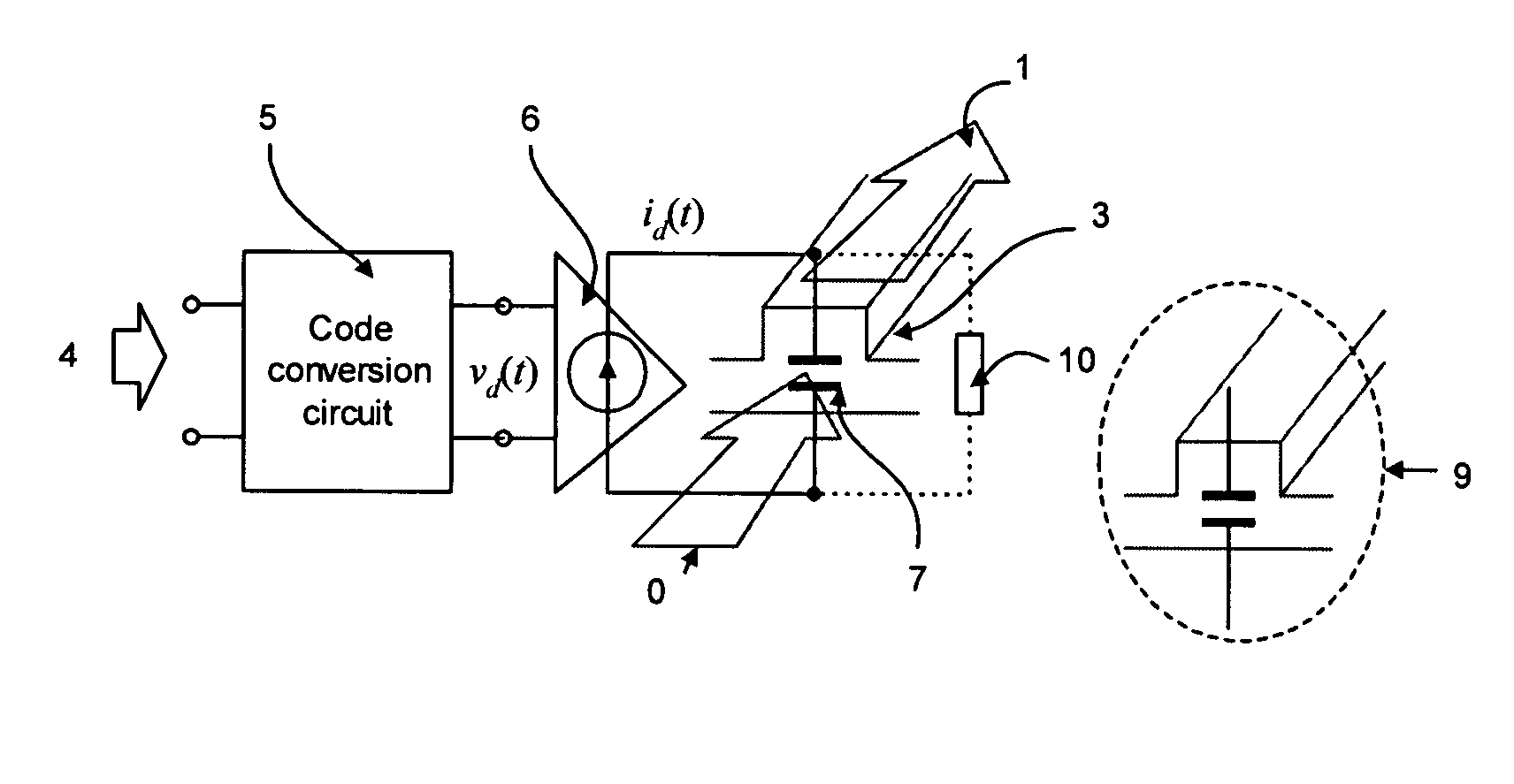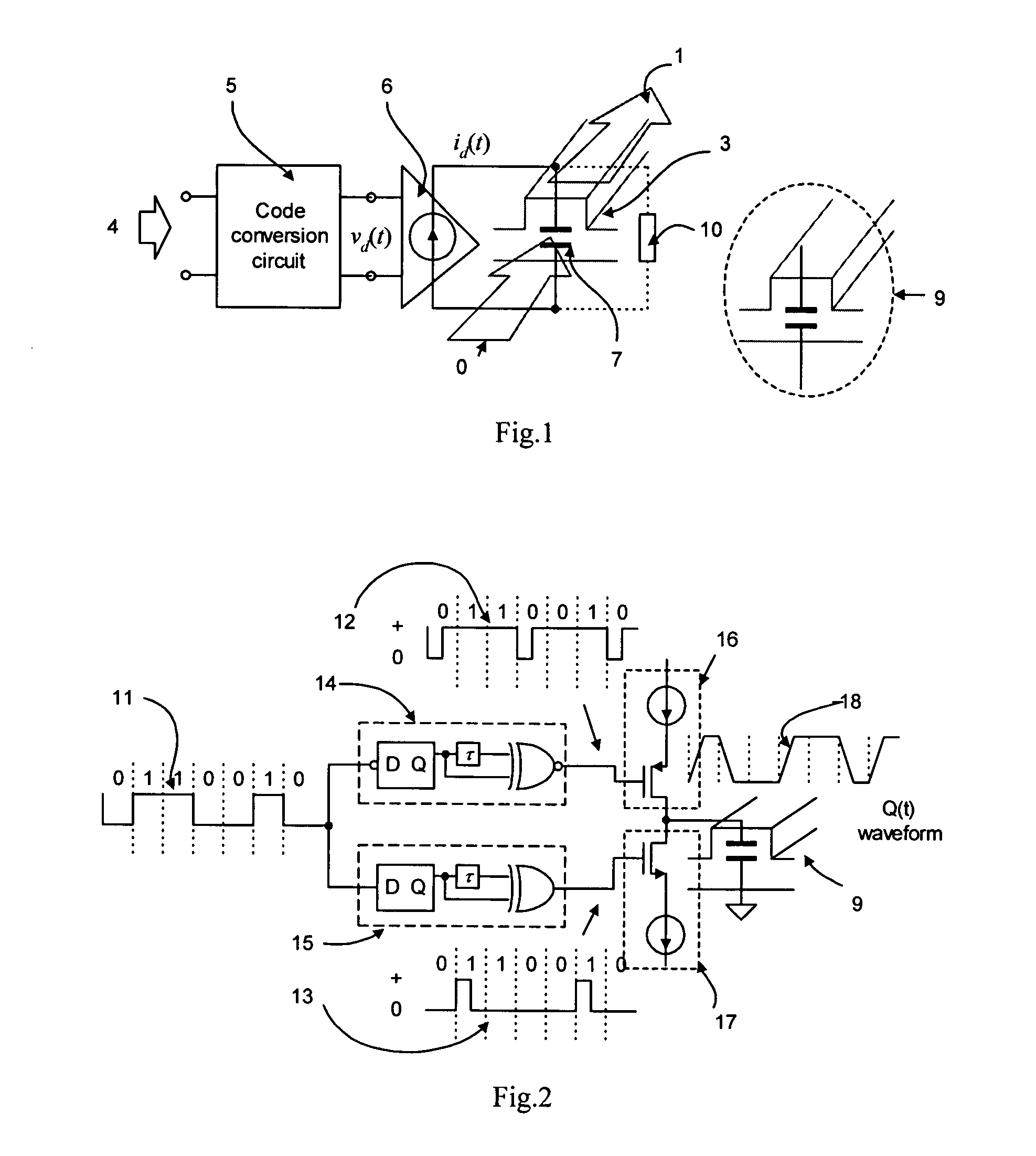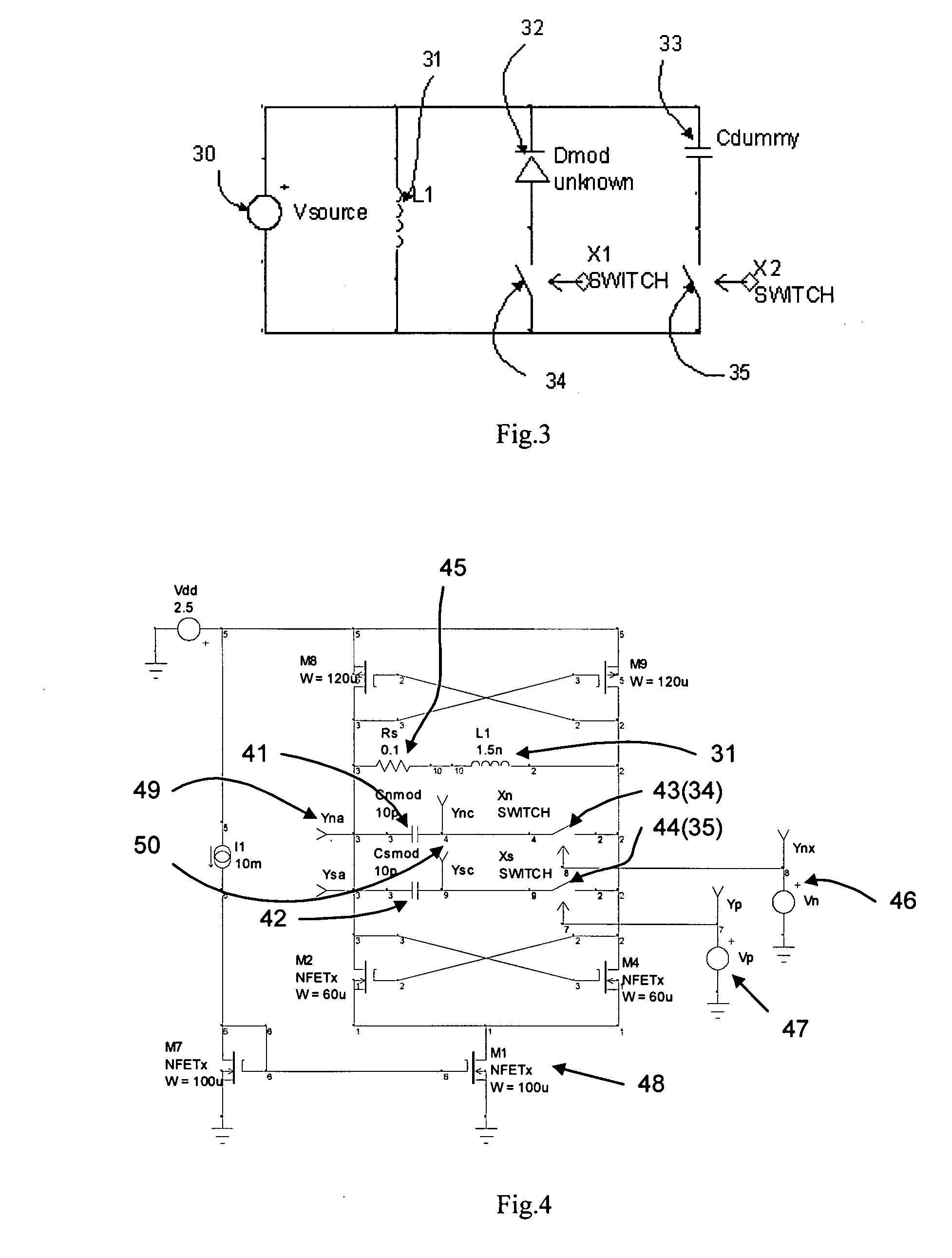Circuit architecture for electro-optic modulation based on free carrier dispersion effect and the waveguide capacitor structures for such modulator circuitry using CMOS or Bi-CMOS process
a technology of free carrier dispersion and capacitor structure, applied in the direction of optical waveguide light guide, instruments, optics, etc., can solve the problems of fundamentally limited performance and conventional technique does not take advantage of monolithic integration between transistors and optical waveguides
- Summary
- Abstract
- Description
- Claims
- Application Information
AI Technical Summary
Benefits of technology
Problems solved by technology
Method used
Image
Examples
invention embodiment 1
Edge-Triggered One-Shot Circuit Driving Charge Pump Modulator Circuit
[0018]FIG. 2 gives an edge-triggered one-shot circuit driving charge pump modulation circuit, in the figure:
11>: the input electrical data, which is a non-return-zero (NRZ) code;
12>: the output of the code conversion, corresponding to the rising edge of the input data 11>;
13>: the output of the code conversion, corresponding to the falling edge of the input data 11>;
14>: rising edge triggered one-shot circuit, which generates 12>;
15>: falling edge triggered one-shot circuit, which generates 13>;
16>: charge pump circuit to charge the waveguide capacitor of the modulation circuit;
17>: charge pump circuit to discharge the waveguide capacitor of the modulation circuit;
18>: the waveform of the charge accumulated in the waveguide capacitor Q(t);
[0019] If the waveguide capacitor uses the majority carrier of the semiconductor, the self-discharge path can be ignored; the equation (1) can be simplified to: ⅆQⅆt=id...
invention embodiment 2
Low Power-Consuming Electro-Optical Modulator Circuit Using Resonator Switching
[0020] Since changing the refraction index of silicon is realized by manipulating the carrier density (either majority carrier density or minority carrier density), driving the modulator is actually charging or discharging the semiconductor junction capacitor or other capacitance structure in semiconductor (for example, MOS capacitor). In traveling wave devices, the electrical energy will propagate along the device and eventually dissipated at the termination end. The device invented here will allow us to re-use that energy for the following bits. Another description for this is, assuming always drive the modulator by return-to-zero (RZ) data, when the charging and discharging finished for one bit (logic 1 at that current bit), the energy released from the modulator-capacitor will be stored in somewhere else. If the following bit is also logic 1, the stored energy will be injected back to the modulator-c...
invention embodiment 3
Waveguide Capacitor for Electro-Optic Modulator Circuits
[0027] Another part of this invention is three new modulator waveguide capacitor structures. They are: (1) the I-type or Y-type of waveguide with gate capacitor (FIG. 6); (2) capsulated waveguide capacitor (FIG. 7); (3) bipolar transistor junctions (FIG. 8.
[0028] The I-type or Y-type of waveguide with MOS capacitor is shown in FIG. 6, in the figure:
61>: silicon area I;
62>: metal contact;
63>: gate oxide or other gate insulator in MOS;
64>: the optical mode illustration in the waveguide of the modulator;
65>: silicon area II;
66>: passivation oxide, also the top cladding of the optical waveguide;
67>: field oxide of the MOS transistor;
[0029] For the I-type waveguide capacitor, as shown in the left of FIG. 6, the surface is CMP to flat after the field oxide deposition or thermal growth. The silicon-II 65> is the original silicon layer of the SOI wafer, and the silicon-I can be the poly silicon deposited, or single crystal si...
PUM
 Login to View More
Login to View More Abstract
Description
Claims
Application Information
 Login to View More
Login to View More - R&D
- Intellectual Property
- Life Sciences
- Materials
- Tech Scout
- Unparalleled Data Quality
- Higher Quality Content
- 60% Fewer Hallucinations
Browse by: Latest US Patents, China's latest patents, Technical Efficacy Thesaurus, Application Domain, Technology Topic, Popular Technical Reports.
© 2025 PatSnap. All rights reserved.Legal|Privacy policy|Modern Slavery Act Transparency Statement|Sitemap|About US| Contact US: help@patsnap.com



